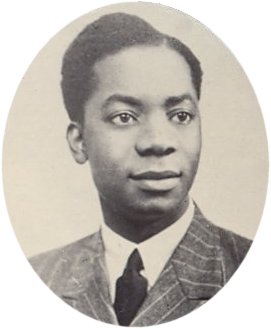Let's talk history
Unsung Hero, Dr. Raphael Ernest Grail Armattoe

Let us turn our focus to the African continent – the ancestral homeland of many Jamaican and Caribbean people and pause to recognize one of the Continent’s prominent Ghanaian scientist who was also part anthropologist, part political activist, part poet and author, Dr. Raphael Ernest Grail Armattoe. If he were alive today he would have celebrated 112 years on August 20. We do this lest we forget that the contributions of unsung heroes of the Motherland to the field of science extended into the 20th Century despite the scourge of colonialism.
As a member of a well-to-do Kpalimé trading family from the Ewe tribe in Togoland, Armattoe was able to study medicine, anthropology and Literature in Europe (Germany, France and Britain), and in 1938 earned his medical degree. He distinguished himself in not only science, but mastered several foreign languages (including Portuguese and Spanish although he never lived in these areas). He also authored several publications including the noted, The Golden Age of African Civilization which came out in 1946 and articulated that African Art and culture prior to the trade in enslaved Africans were the equal of any in the world.
In 1941, he was admitted to the fellowship of the Royal Society of Edinburgh and later became a Senior Travelling Research Fellow for the Warner Bon Foundation of Anthropology. While he spent his working life in Europe, he remained concerned with matters affecting his homeland. Through the Wenner-Gren Foundation for Antropological Research, Armattoe returned to Ghana as a Senior Travelling Research Fellow and undertook field research to determine the medical application of different species of African herbs. As a result of his work, he was nominated in 1948 for the Nobel Peace Prize in Physiology. While the nomination did not translate into a win, it certainly gave him global recognition at the time and motivated him to delve deeper into scientific research. He established the Lomoshie Research Centre in London, directing his own team of scientists carrying out research for various governments and institutions.
His most noted accomplishment in the field of science was his discovery of a cure that helped millions across West Africa in the 1940s. The Abochi drug which he developed building on traditional knowledge could effectively treat parasitic and water-borne illnesses such as guinea worm, ring-worm, boils and even bronchitis and toothache. Guinea worm disease was particularly troublesome. Sadly, Armattoe’s contribution today is omitted from discussions about treatments for guinea worm disease as it did not have the institutional backing of large European based pharmaceutical companies.
While he sought to address medical needs of his people, Armattoe was also concerned about the colonial divisions such as that of Togoland and the global conditions of Africans. As such, he got involved in the Pan-Africanist movement and in 1953 addressed the United Nations about the unification of British and French Togoland. Sadly, he died suddenly in Hamburg on December 22nd of that same year and much suspicions abounded about his untimely death. Tragically, with him also died in large part the memory of his contributions.
Let us remember Dr. Raphael Armattoe and keep history alive!
Reference:
African Books Limited. Makers of Modern Africa: Profiles in History, African Books Limited: 1991, 64-65.
Kentake, Meserette.Dr. Raphael Armattoe: Renown Ghanaian doctor who discovered the Abochi drug, AccessedAugust 14, 2025. https://kentakepage.com/dr-raphael-armattoe/.
Na Me Talk Am.“Ulster Honours Famous Ghanaian Scientist!”, Accessed August 14, 2025, https://www.modernghana.com/news/422961/ulster-honours-famous-ghanaian-scientist.html.

